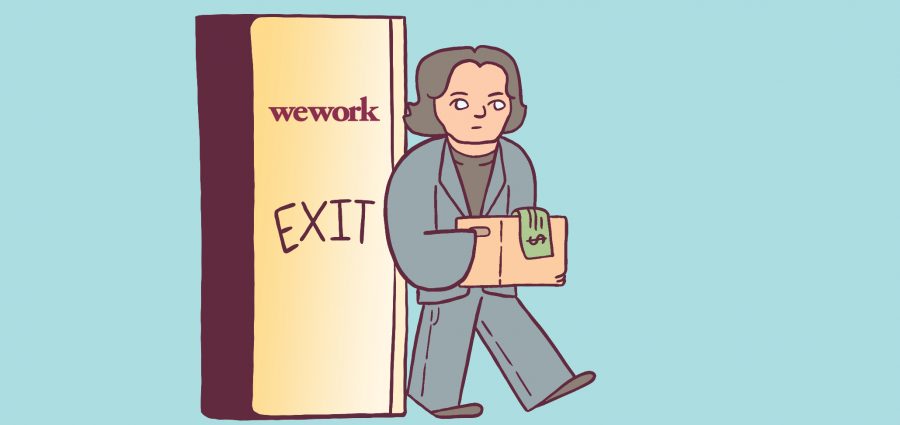WeWork CEO Adam Neumann, a Baruch College graduate, announced on Sept. 24 that he is stepping down after an uproar over governance and valuation just as the company was planning to go public. It seems contradictory to the company’s initial public offering prospectus. In the company’s IPO prospectus, WeWork said Neumann was “critical to our operations,” and the S-1 filing said “Adam has been key to setting our vision, strategic direction and execution priorities.”
Neumann will be replaced by Sebastian Gunningham, a former Amazon executive, and CFO Artie Minson, formerly of AOL. Both will become interim co-CEOs. Neumann will become a non-executive chairman of the We Co., the parent of the office-sharing business.
The company that was once valued at $47 billion fell to $15 billion. This was only one of the many dominos that are falling for WeWork as they continue vying for investors.
In the morning of Sept. 30, WeWork’s parent company was reported to be seeking to file a request for IPO withdrawal with the Security and Exchange Commission, according to the Wall Street Journal.
Like many startups or emerging private companies over the past decade WeWork is heavily reliant on taking on debt financing due to very high capital expenditure and even guilty luxuries such as a G650ER jet purchased for more than $60 million. WeWork’s new co-CEOs anticipate “difficult decisions ahead” as an analyst warns the company could be out of money by early 2020.
The decision to preserve cash is critical now because WeWork had $2.5 billion in cash as of June 30. At the current cash burn rate of about $700 million a quarter it would run out of money sometime after the first quarter of 2020, according to Chris Lane, an analyst at Sanford C. Bernstein & Co.
The company must maintain its cash if it wants to solvent. It seems that now the company plans to delay an IPO for the foreseeable future. There will be a trimming in
the thousands of positions from its staff of more than 12,000 and selling of businesses outside its core leasing operation.
WeWork’s founders’ goal is to prepare a slimmed-down company for a public offering that would raise much-needed cash, likely during the next year.
Whether this is seen as a distraction or not, it is currently affecting investors, employees and New York City. WeWork has stopped signing new office leases, a fresh blow to New York City’s already softening commercial real-estate market.
In Manhattan, WeWork became the biggest office lease holder last year and now occupies more than 7 million square feet. All these acquisitions, however, came at a cost for New York’s favorite tenant. WeWork became a favorite New York tenant in part because it was sometimes was willing to pay above market rents to keep its growth firing.
In one recent instance, WeWork made a verbal offer to lease up to 80,000 square feet in a Midtown Manhattan tower paying a 20% premium to the market rate.
It’s easy to see now that the company is being hit on all fronts and proves that too much growth too quickly can actually be detrimental.
John Warrillow summarized the situation saying if the goal is to grow your business fast, a positive cash flow cycle or the ability to raise money at a feverish pace to match is necessary, as mentioned in Forbes.
Anything less and the company will quickly grow out of business into bankruptcy as cash is the lifeline of a business.








